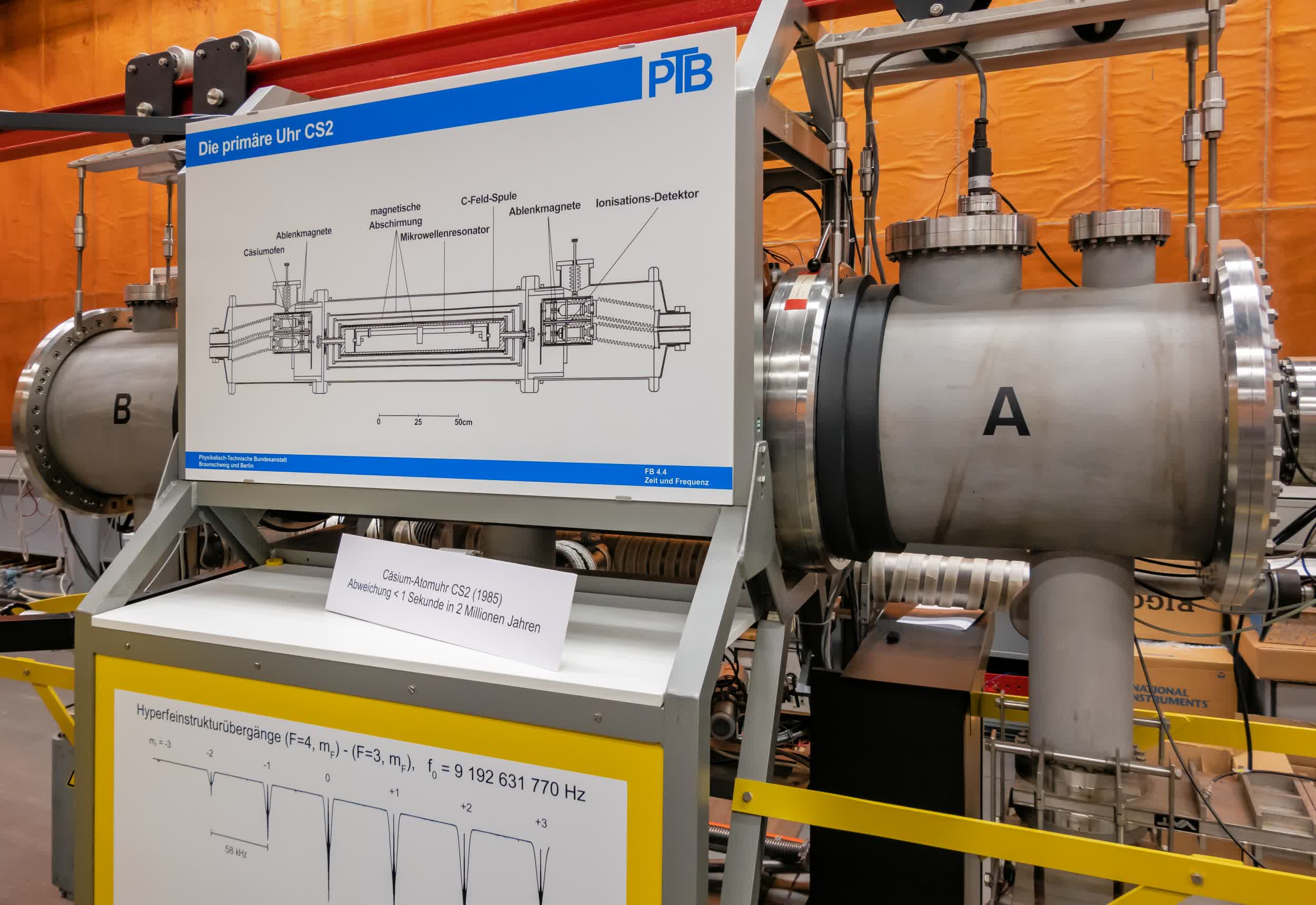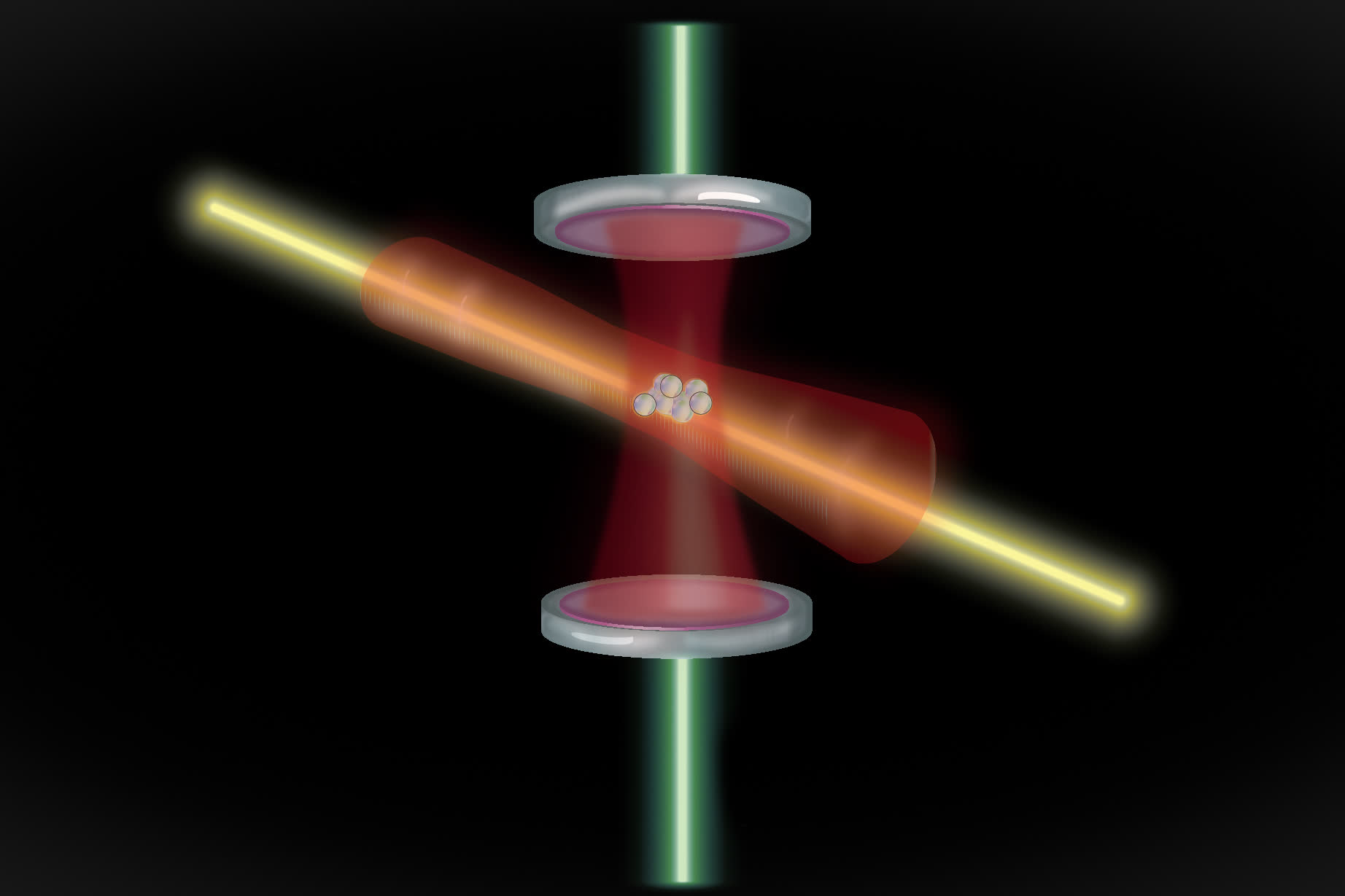

MIT created a new type of atomic clock that measures entangled atoms
source link: https://www.techspot.com/news/88017-mit-created-new-type-atomic-clock-measures-entangled.html
Go to the source link to view the article. You can view the picture content, updated content and better typesetting reading experience. If the link is broken, please click the button below to view the snapshot at that time.
MIT created a new type of atomic clock that measures entangled atoms
Improved atomic clocks could help scientists determine what impact gravity has on time
By Shawn Knight on December 17, 2020, 2:23 PM
In context: Modern atomic clocks are pretty darn precise – so much so, in fact, that their accuracy is measured in terms of the lifespan of the entire universe. One such example, the strontium atomic clock, is so accurate that had it started running at the beginning of the universe, it wouldn’t have gained or lost one second if checked today.
But as with most things in life, there’s always room for improvement.
Physicists at the Massachusetts Institute of Technology have designed a new type of atomic clock that measures entangled atoms instead of a cloud of randomly oscillating atoms.
“The atoms are correlated in a way that is impossible according to the laws of classical physics, and that allows the scientists to measure the atoms’ vibrations more accurately,” said Jennifer Chu with the MIT News Office.

(Atoms are trapped in an optical cavity composed of two mirrors. When a “squeezing” laser is set through the cavity, the atoms are entangled, and their frequency is measured with a second laser, as a platform for more precise atomic clocks.)
If today’s state-of-the-art atomic clocks were modified to measure entangled atoms in this way, their timing – if started at the beginning of the universe – would be off by less than 100 milliseconds today.
More precise atomic clocks could also help scientists unlock mysteries of the universe by measuring things like dark matter and gravitational waves.
“As the universe ages, does the speed of light change? Does the charge of the electron change?” questioned Vladan Vuletic, a professor of physics at MIT. “That’s what you can probe with more precise atomic clocks.”
The team’s research, supported in part by the National Science Foundation, the Office of Naval Research, and DARPA, has been published in the journal Nature.
Masthead credit: geogif
Recommend
About Joyk
Aggregate valuable and interesting links.
Joyk means Joy of geeK